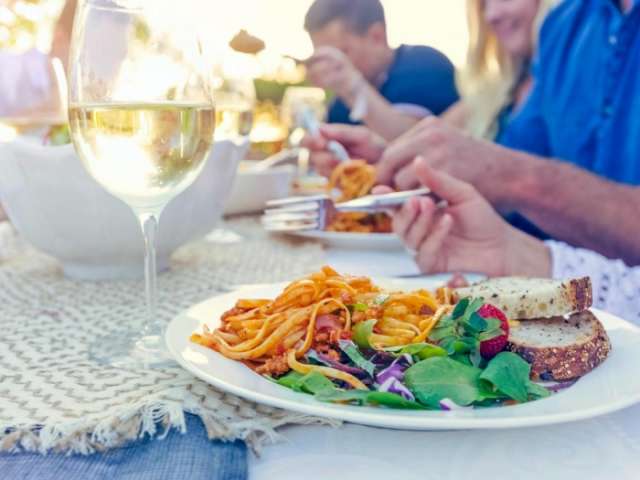But the truth about carbs is a lot more complicated than simply labelling them as "bad" and binning them forever, according to dietitians. First off, carbs are often used as a by-word for foods such as potatoes, bread and pasta. In actuality, carbohydrates are broken into three subcategories: sugar, starch and fibre. Fruit, vegetables and milk fall into the ‘sugar’ category; starch includes rice, bread and potatoes; while fibre is found in whole grain breads and pasta, and pulses. It’s refined carbs, from white bread, pastries, confectionary, cakes and sweets that we need to be careful about eating too often to avoid weight gain, diabetes and other chronic diseases.
The issue isn’t carbs, but our portion sizes in relation to how much we move, explains dietitian and BDA Spokesperson, Aisling Pigott.
“We should all be paying more attention to appropriate amounts of carbohydrate in our diet, not because they are ‘bad’, but because we need to eat the right amount for our body. No food type, whether it be fat, protein, carbohydrate or even vegetables is wholly good, nor wholly bad. It is part of our nature to sensationalise things, and we struggle with this concept of moderation,” she adds.
The good news is that people who have followed a diet low in starchy carbs aren’t harming themselves particularly, but they are probably making their lives harder than they need to be.
“Generally, for healthy and well people there is little physical danger other than constipation, bad breath and mood-swings in following a low-carb diet,” says Pigott. “As a dietitian having seen various fads over the years, I would argue there is a psychological danger.”
At first, a diet low in starchy carbs will get rid of water retention in the muscles - which isn’t actually a sign of fat loss. A long-term diet free of starchy carbs might cause a drop on the scale, but keeping it up is the hard part, says Pigott.
“The removal of starchy carbohydrate from the diet in people who already have a difficult relationship with food can actually lead to increased risk of binging and overeating,” she warns.
By cutting out all carbs - not just the refined kind - we lose an important source of B vitamins and soluble and insoluble fibre, which aid digestion, warns BDA Spokesperson Anna Groom.
Portion sizes also need to correlate with the amount of energy we use. Obviously someone who runs 5km a day needs to eat more starchy carbs than someone who does no exercise and sits at a desk all day. Replacing starchy foods with spiralised courgettes or cauliflower rice is another common mistake which can cause a person to struggle to concentrate and binge-eating.
A rough guide that dietitian Nichola Whotehead suggests following is eating half a plate vegetables or salad, a quarter or a clenched first of starchy carbohydrates, and a quarter protein, as well as a thumb-size of healthy fats like olive oil, avocado or cheese. “For weight maintenance it would be one third of each,” she says.
“A healthy diet is one that is balanced and colourful, based around plenty of wholesome foods such as vegetable and fruit, whole grains, fish, white meat, nuts and seeds and healthy fats such as olive oil," she adds. "I promote the 80/20 rule which means as long as you are eating nutrient dense whole foods 80 per cent of the time, a little bit of indulgence doesn't matter.” It will, in all likelihood, stop you from bingeing and losing the will to live.
“We are looking for an ideal, a perfect idea, a list of do’s and do nots," adds Pigott. "There is no such thing as perfect, particularly when it comes to food, and lifestyle. To me the ideal diet is one which involves enjoying every meal, with sensible portion sizes, never restricting or cutting out foods, but enjoying nice things in moderation."
More about: #healthyeating
















































